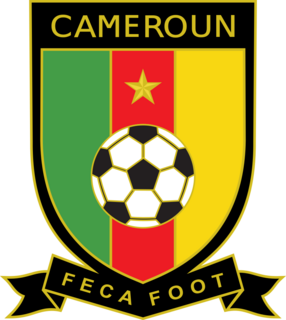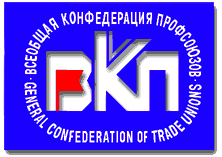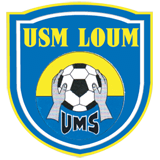Related Research Articles

The Norwegian Confederation of Trade Unions is a national trade union center, decidedly the largest and probably the most influential umbrella organization of labour unions in Norway. The 21 national unions affiliated to the LO have almost 1,000,000 members of a Norwegian population of 5 million. The majority of affiliated unions organizes traditional blue collar workers, but the largest affiliate is the Norwegian Union of Municipal and General Employees which makes up more than a third of all members. LO is affiliated to the ITUC and the ETUC. Gerd Kristiansen was elected leader on 6 May 2013 for a four-year period.
A national trade union center is a federation or confederation of trade unions in a country. Nearly every country in the world has a national trade union center, and many have more than one. In some regions, such as the Nordic countries, different centers exist on a sectoral basis, for example for blue collar workers and professionals.

The Cameroon national football team represents Cameroon in men's international football and It is controlled by the Fédération Camerounaise de Football. The team has qualified seven times for the FIFA World Cup, more than any other African team. However, the team has only made it once out of the group stage. They were the first African team to reach the quarter-final of the FIFA World Cup in 1990, losing to England in extra time. They have also won five Africa Cup of Nations and Olympic gold in 2000. The team represents Cameroon both in FIFA and Confederation of African Football (CAF).

Senegambia, officially the Senegambia Confederation, was a loose confederation in the late 20th century between the West African countries of Senegal and its neighbour the Gambia, which is almost completely surrounded by Senegal. The confederation was founded on 1 February 1982 following an agreement between the two countries signed on 12 December 1981. It was intended to promote cooperation between the two countries, but was dissolved by Senegal on 30 September 1989 after the Gambia refused to move closer toward union. The Senegambia Confederation should not be confused with the historic Senegambia region, generally shortened to the Senegambia.

The General Confederation of Trade Unions or GCTU is an international trade union confederation. It was founded on 16 April 1992 and incorporates members from the Commonwealth of Independent States.
The Confederation of Cameroon Trade Unions (CCTU/CSTC) is a trade union centre in Cameroon.
The Union of Free Trade Unions of Cameroon is a trade union centre in Cameroon. The USLC is affiliated with the International Trade Union Confederation, and the Organization of African Trade Union Unity.
Dieter Schulte is a German trade union leader. He was chairman of the German Confederation of Trade Unions (DGB) from 1994 to 2002.

The Taiwan Confederation of Trade Unions is a national trade union center in Taiwan. It was established in 1997, but did not receive official recognition from the government until May 1, 2000.

The Tunisian General Labour Union is a national trade union center in Tunisia. It has a membership of more than one million and was founded January 20, 1946.
The Confederation of African Athletics is the continental association for the sport of athletics in Africa. It is headquartered in Dakar, Senegal. It organises the African Championships in Athletics and other continental competitions. The body's current president is Hamad Kalkaba Malboum of Cameroon.
Trade unions in Albania have had an unstable existence in recent decades, mirroring the regional political turbulance in Albania. Since the 1991 defeat of the Albanian Party of Labour (APL), independent trade unions have asserted themselves, with two main national trade union centres; the United Independent Albanian Trade Unions (BSPSh) and the Confederation of Trade Unions (KSSh).

The following outline is provided as an overview of and topical guide to Cameroon:
Rugby union in Cameroon is a minor but growing sport. They are currently ranked 77th by the IRB.
The Cameroonian Rugby Federation is the governing body for rugby union in Cameroon. It is a member of the Confederation of African Rugby (CAR) and a member of the International Rugby Board.
Confédération africaine des syndicats libres, initially 'Confédération africaine des syndicats libres-Force ouvrière, was an Africa confederation of trade unions. CASL-FO was founded in February 1958 as the African sections of the French trade union centre CGT-Force Ouvrière separated themselves from their mother organization. The new union confederation was founded at a conference in Abidjan February 8–9, 1958, with participation of the CGT-FO branches of Senegal, French Soudan, Upper Volta, Niger, Ivory Coast, Cameroon, Moyen-Congo and Ubangui-Shari. At the time of the founding of CASL-FO, the relationship of the new structure with the International Confederation of Free Trade Unions (ICFTU) and CGT-FO, was debated. In the end the conference resolved that CASL-FO and CGT-FO should have membership of ICFTU on equal footing.
The Plantation Workers International Federation was an international trade secretariat of the International Confederation of Free Trade Unions. PWIF was founded at the firth ICFTU world congress held in Tunis in July 1957. Samuel Powell Claret was appointed as the general secretary of PWIF and Tom S. Bavin as its Director of Organisation. PWIF was launched by ICFTU to organize plantation unions in the Third World.

Union des Mouvements Sportifs de Loum or simply UMS de Loum is a Cameroonian football club based in Loum. They are a member of the Cameroonian Football Federation and Elite One, the topflight football league of Cameroon. Currently the team plays at the Stade de Njombé.
Trade unions in Norway first emerged with the efforts of Marcus Thrane and the formation of the Drammen Labour Union in 1848 which organised agricultural workers and crofters. However, with Thrane's imprisonment and the suppression of the union in 1855, it was not until 1872 before a union was founded again, by print workers. In 1899 the first national federation, the LO, was founded. During this period interactions with trade unions in Denmark and Sweden played a great influence over the development of trade unions in Norway.
References
- ICTUR; et al., eds. (2005). Trade Unions of the World (6th ed.). London, UK: John Harper Publishing. ISBN 0-9543811-5-7.